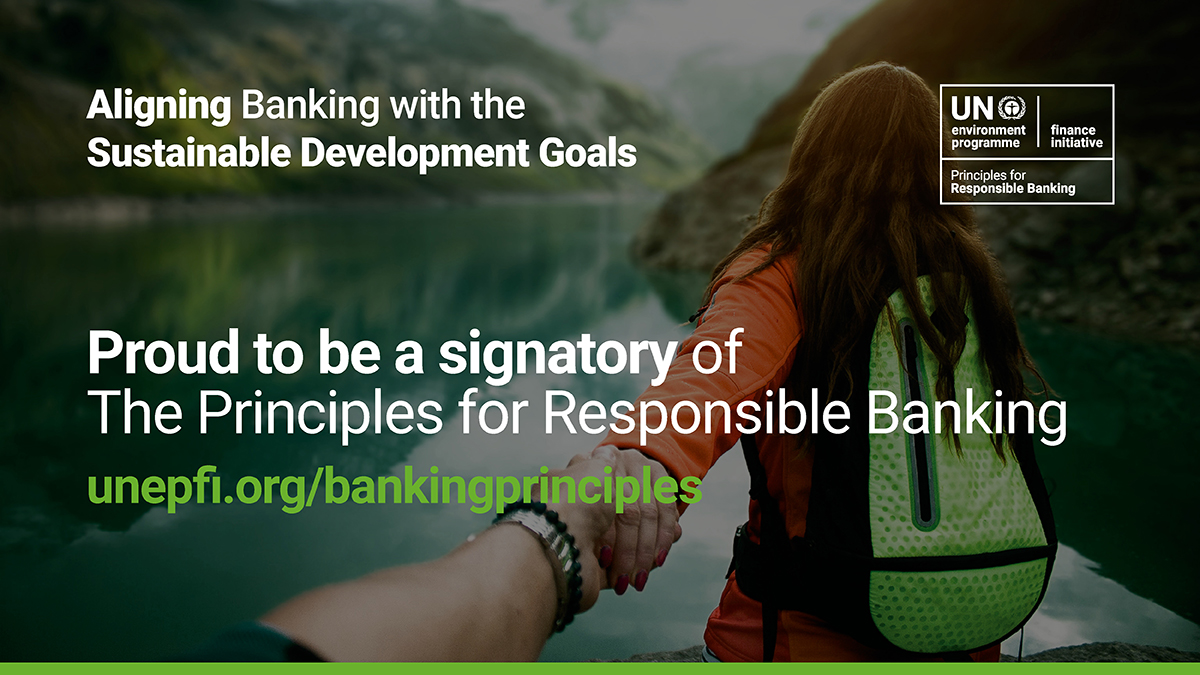Bank of Cyprus is committed to supporting development, maintaining its social leadership footprint and contributing to a resilient economy
Now more than ever businesses are called upon to ensure their sustainability and stakeholders require them to operate responsibly and transparently, to take actions for the protection of the environment and for the wellbeing of citizens.
Until now, Corporate Social Responsibility is the essential expression of social responsibility of businesses. CSR programmes can be implemented in the working environment for the benefit of the environment, society, health and education.
However, approaches become more dynamic and more demanding when moving from Corporate Responsibility to Sustainable Development and at the same time to the triptych of Environment – Society – Governance (ESG).
Proper corporate governance, compliance with human and labour rights, relations with local communities, environmentally responsible practices, are perhaps the most important part of a company’s Non-Financial Performance. Therefore, the preparation of Sustainable Development Assessments and Reports is an urgent need and not merely a record of actions of a social nature.
Data and metrics
ESG (Environmental, Social and Governance) data, which are now included in the main objectives of companies, refer to measurements concerning the intangible assets of the company. Good ESG performance ensures access to sustainable investments and reduces the risk of economic activity.
Bank of Cyprus is leading the country’s transition to a sustainable future. Working with the basic principle ‘Beyond Banking’, it strategically approaches sustainable development, taking into account the continuous challenges arising from its business activity and affecting the environment, people and the economy.
The Bank’s commitments, as set out in its ESG strategy, focus on four key objectives:
- Achieving Carbon Neutrality by 2030
- Achieving Net Zero by 2050
- The gradual increase of the Green Asset Ratio
- The gradual increase of the Green Mortgage Ratio
Eco-friendly
The Bank, by setting a good example, minimises its environmental footprint and promotes the green economy. For this purpose, it has drawn up an action plan directly linked to its overall strategy to meet the growing demands and expectations of its shareholders. More specifically, to achieve the goal of climate neutrality by 2030, the Group needs to reduce greenhouse gas emissions by its operations by 42 per cent by 2030. The Bank, following the implementation of various energy upgrade actions in 2022 and 2023, managed to reduce emissions by approximately 18 per cent in 2023 compared to the 2021 benchmark.
Realising the importance and prospects offered by lending and investment activities, based on ESG criteria, it offers environmentally friendly loans, and invests in financial products that support ESG values. It has prioritised a sustainable business portfolio, providing funding not only to businesses that can benefit from the green transition, but also to those that work diligently and actively participate in environmental initiatives. In addition, the Bank has placed a decarbonisation target on its housing portfolio where greenhouse gas emissions must be reduced by 43 per cent by December 31, 2030 compared to emissions on December 31, 2022. At the end of 2023, the Bank introduced the offer of a Green Housing Product to help achieve the decarbonisation target in its housing portfolio and support the transition to a low-carbon economy.
Investors are showing increased interest in ESG investments and Sustainability Assessment Agencies and Index Providers evaluate a Bank’s performance, actions and results towards sustainable development.
Devotion
The Bank’s ESG course has already made great progress. Thus, the Bank remains committed to its strategy and objectives which, apart from the environment, are to return part of its profits to society through social actions, such as SupportCY and actions aimed at health, such as the long-term support of the Bank of Cyprus Oncology Centre, recognising that challenges related to climate change and social issues affect us all.
The Bank of Cyprus is committed to further strengthening its organisational resilience and ESG agenda by implementing a strategy, supported by effective corporate governance, in line with broader sustainability and ESG priorities. It is committed to strengthening its Corporate Governance policies and procedures and complies with the UK Governance Code, the CSE Code and the CBC’s Internal Governance Directive 2021.

Good governance
At all levels of decision making, the Bank ensures that women have full and effective participation and equal opportunities in leadership positions. The Group’s goal of achieving at least 30 per cent female representation at Senior Management levels and the Expanded Executive Committee by 2030 has been achieved earlier, with 33 per cent representation as of December 31, 2023 following the appointment of two women to the positions of Director General of Eurolife and Director General of Eurolife General Insurance of Cyprus. With climate action and the ESG agenda playing a central role, the Bank has developed Governance, strengthening oversight and accountability on these issues at all levels of the organisation.
The future poses constant challenges, which is why the Bank has a very clear vision to lead Cyprus’ transition to a sustainable future. It remains committed to expanding its operations, supporting inclusive growth, maintaining its leading social footprint and contributing to a sustainable and resilient economy, creating long-term value for all, without exception.
Already, as recorded in the latest Sustainable Development Report, its course in the field of ESG has made great progress and remains committed to the implementation of its strategy and goals, recognising that challenges related to climate change and social issues affect us all.







Click here to change your cookie preferences